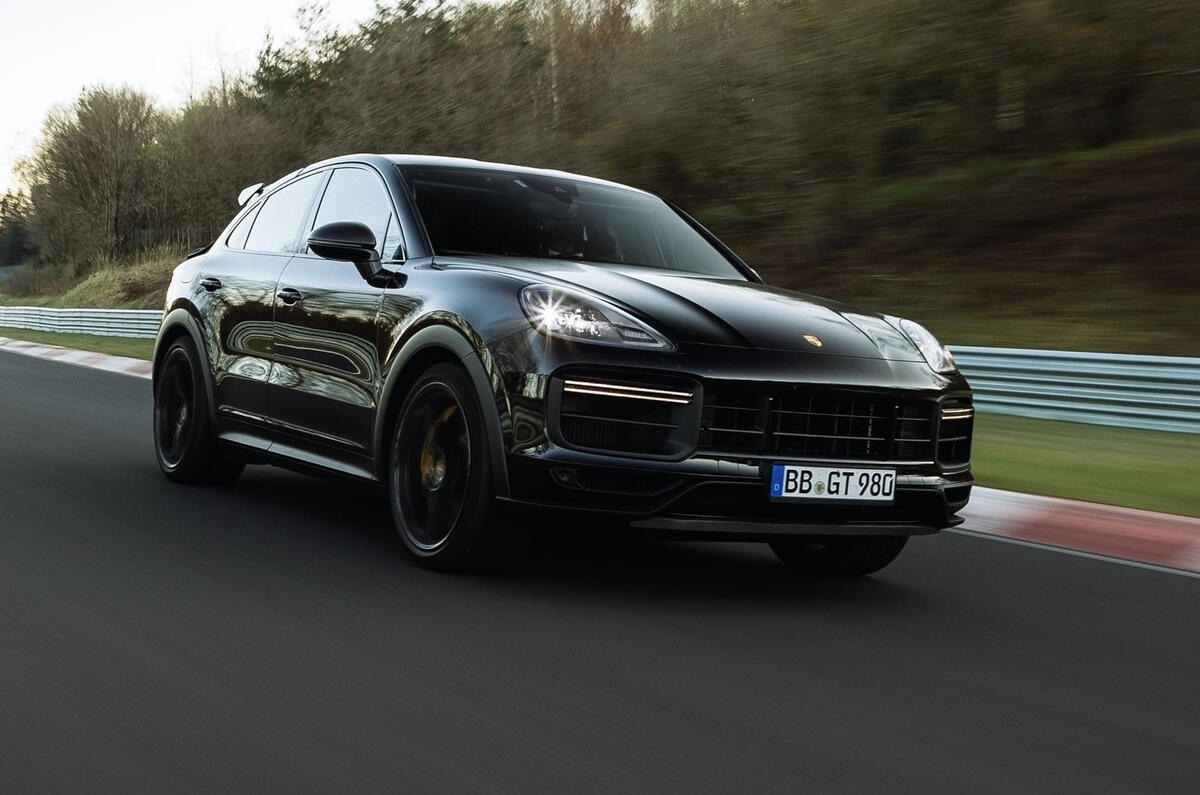Porsche is considering hydrogen as a low-emissions fuel for combustion engines and has used a virtual recreation of the Nürburgring to evaluate whether it can offer comparable performance to petrol.
The German company has made its interest in alternative fuelling solutions – separate to electrification – well known in recent years, having established a joint venture with Siemens to build a synthetic fuel production site in Chile and recently invested £57 million in synthetic-fuel manufacturer HIF Global.
The latest announcement from Porsche indicates that it's also considering other means of futureproofing its range of ICE products while it ushers in an expanded range of battery-electric cars.
Porsche has previously suggested that it could use sustainable fuels as a way to sell ICE cars in the UK after the 2030 ban on sales of non-zero-emissions new cars is implemented.
Porsche notes that other manufacturers are testing hydrogen-combustion engines (Toyota is the most vocal about the virtues of the technology) but says other programmes are largely focused on the commercial vehicle sector, eliciting an output of around 67bhp per litre.
"For the passenger sector, this is insufficient", said Vincenzo Bevilacqua, senior expert of engine simulation at Porsche Engineering.
Therefore Porsche's virtual hydrogen-combustion test programme is aimed specifically at achieving the same power and torque output from running an engine on hydrogen as on petrol - in this instance the twin-turbocharged 4.4-litre V8 used by the Porsche Cayenne and Porsche Panamera.
The engine has been modified to run on hydrogen, featuring a higher compression ratio and – more significantly – new electrically assisted turbochargers. These are derived from those used by Porsche race cars, because standard road-going blowers wouldn't be able to feed in sufficient air mass while coping with the lower exhaust pressure resulting from hydrogen combustion. So tested, the V8 produces 590bhp.
It has been configured for "the cleanest possible combustion". By keeping the fuel mixture lean and the combustion process as cold as possible, it can be run without an exhaust aftertreatment device.
To test the performance potential of hydrogen-combustion engines, Porsche simulated a Nürburgring lap using a "luxury-segment reference vehicle" weighing 2650kg – more than a Cayenne – and posted a time of 8min 20sec. That's only 42sec longer than the time posted by the 631bhp Porsche Cayenne Turbo GT last year, achieving a top speed of 162mph.
Just as significantly, the lap contributed no hydrocarbons or carbon monoxide to the atmosphere.
Matthias Böger, specialist engineer of engine simulation at Porsche Engineering, said: "As it turned out, the nitrogen oxide emissions are well below the limits set by the Euro 7 standard currently under discussion and are close to zero over the entire engine map."
Porsche also notes that "in addition to its barely measurable emissions", running the engine on hydrogen "offers high efficiency in the WLTP measurement cycle as well as in customer-relevant cycles".








Join the debate
Add your comment
Just how much is the hydrogen business paying auto car to keep posting this hydrogen car rubbish.